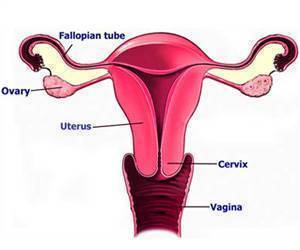An animal study has found that endometriosis, a gynecological disorder could be due to a bacterial infection.

Endometriosis
Go to source) . The reasons behind endometriosis were unclear until now, when researchers discovered that a bacterial infection could be behind the condition.
Targeting Fusobacterium for Endometriosis
Their findings, published in the journal Science Translational Medicine, showed that using an antibiotic to target Fusobacterium reduced the formation of lesions associated with endometriosis (2✔ ✔Trusted SourceFusobacterium infection facilitates the development of endometriosis through the phenotypic transition of endometrial fibroblasts
Go to source).
‘Endometriosis, a gynecological disorder could be the result of a bacterial infection, according to experts. #endometriosis’





Although endometriosis can be treated using hormone therapy and surgical resection, these procedures sometimes lead to side effects, recurrence, and a significant impact on pregnancy.The antibiotic treatment targeting the bacterium shows potential for easier diagnosis and treatment, and suggests an alternative treatment for this disorder, said researchers from the Nagoya University Graduate School of Medicine.
In mice studies, they found that the uterus of mice infected with Fusobacterium had more and heavier lesions.
Antibiotics May Help Treat Endometriosis
However, mice that had been given an antibiotic to eradicate Fusobacterium saw improved lesion formation.The team's findings strongly suggest that targeting Fusobacterium is an effective non-hormonal antibiotic treatment for endometriosis.
"Eradication of this bacterium by antibiotic treatment could be an approach to treat endometriosis for women who are positive for fusobacterium infection, and such women could be easily identified by vaginal swab or uterus swab," said Yutaka Kondo.
Advertisement
The initial finding was that a protein called transgelin (TAGLN) was often upregulated in patients with endometriosis. This was unsurprising because the protein is associated with processes that are important in the development of endometriosis.
Since TGF-beta is released by macrophages, the natural anti-inflammatory response and immune regulation cells of the body, this led them to conclude that these macrophages were being activated in response to Fusobacterium.
"In this study, we demonstrated that the Fusobacterium-TAGLN-endometriosis axis is frequently dysregulated in endometriosis," said Kondo.
"Our data provide a strong and novel rationale for targeting Fusobacterium as a non-hormonal antibiotic-based treatment for endometriosis."
Clinical trials of antibiotic treatment for human patients are ongoing at the Department of Obstetrics and Gynecology at Nagoya University Hospital.
References:
- Endometriosis - (https://www.who.int/news-room/fact-sheets/detail/endometriosis)
- Fusobacterium infection facilitates the development of endometriosis through the phenotypic transition of endometrial fibroblasts - (https://pubmed.ncbi.nlm.nih.gov/37315109/)
Source-IANS















